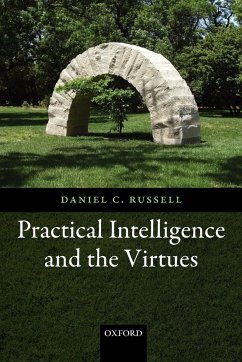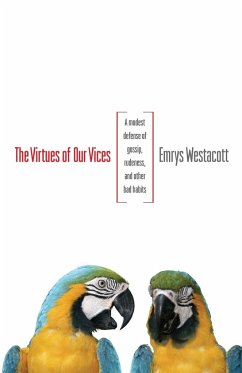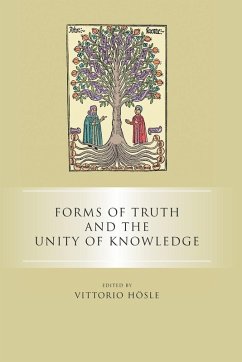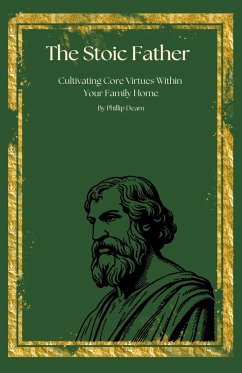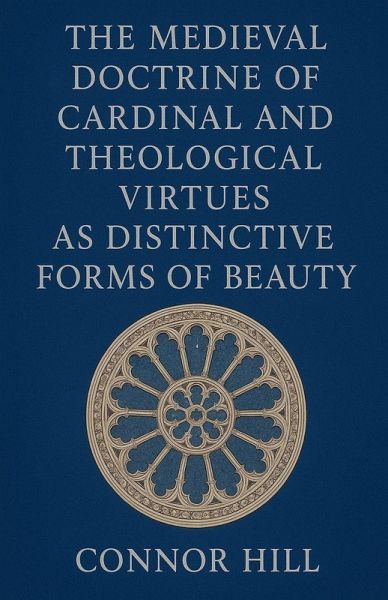
The Medieval Doctrine of Cardinal and Theological Virtues as Distinctive Forms of Beauty
Versandkostenfrei!
Versandfertig in 1-2 Wochen
17,99 €
inkl. MwSt.

PAYBACK Punkte
9 °P sammeln!
In a world that separates goodness from beauty, morality from aesthetics, this groundbreaking study reveals a forgotten perspective that could transform how we understand human flourishing. Drawing from richly illuminated manuscripts, soaring cathedral architecture, mystical visions, and profound philosophical treatises, this book invites readers on a captivating journey through medieval thought where virtue was not merely good but beautiful. Medieval thinkers from Thomas Aquinas to Hildegard of Bingen, from Dante to Julian of Norwich, shared a revolutionary insight: a virtuous soul possesses ...
In a world that separates goodness from beauty, morality from aesthetics, this groundbreaking study reveals a forgotten perspective that could transform how we understand human flourishing. Drawing from richly illuminated manuscripts, soaring cathedral architecture, mystical visions, and profound philosophical treatises, this book invites readers on a captivating journey through medieval thought where virtue was not merely good but beautiful. Medieval thinkers from Thomas Aquinas to Hildegard of Bingen, from Dante to Julian of Norwich, shared a revolutionary insight: a virtuous soul possesses the same essential qualities as other beautiful things-integrity, proportion, and clarity. Through vivid explorations of monastery halls and knights' courts, theological debates and mystical experiences, this book reconstructs a world where prudence shone with intellectual brilliance, justice created harmonious social relationships, courage displayed steadfast integrity, and temperance manifested balanced desire. Faith, hope, and love appeared not as abstract principles but as luminous realities transforming the soul into a reflection of divine beauty. Beyond historical fascination, this work challenges our modern compartmentalization of human experience. As contemporary thinkers increasingly recognize the limitations of fragmented approaches to well-being, the medieval integration of ethical and aesthetic dimensions offers a compelling alternative. By recovering this forgotten wisdom, we discover resources for living not merely good but beautiful lives-lives where moral development and aesthetic sensitivity enhance rather than oppose each other, where character formation becomes an art of spiritual splendor. For readers interested in virtue ethics, theological aesthetics, medieval culture, or personal transformation, this eloquent study offers both scholarly insight and practical wisdom, revealing how an ancient perspective might illuminate new pathways toward human flourishing in our fragmented age.





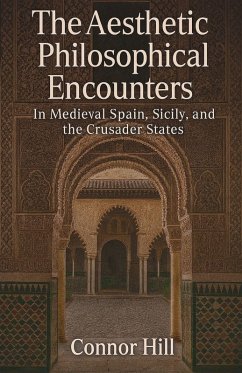
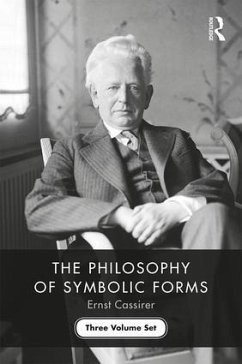
![The Homely Virtues [microform] Cover The Homely Virtues [microform]](https://bilder.buecher.de/produkte/65/65593/65593098n.jpg)
